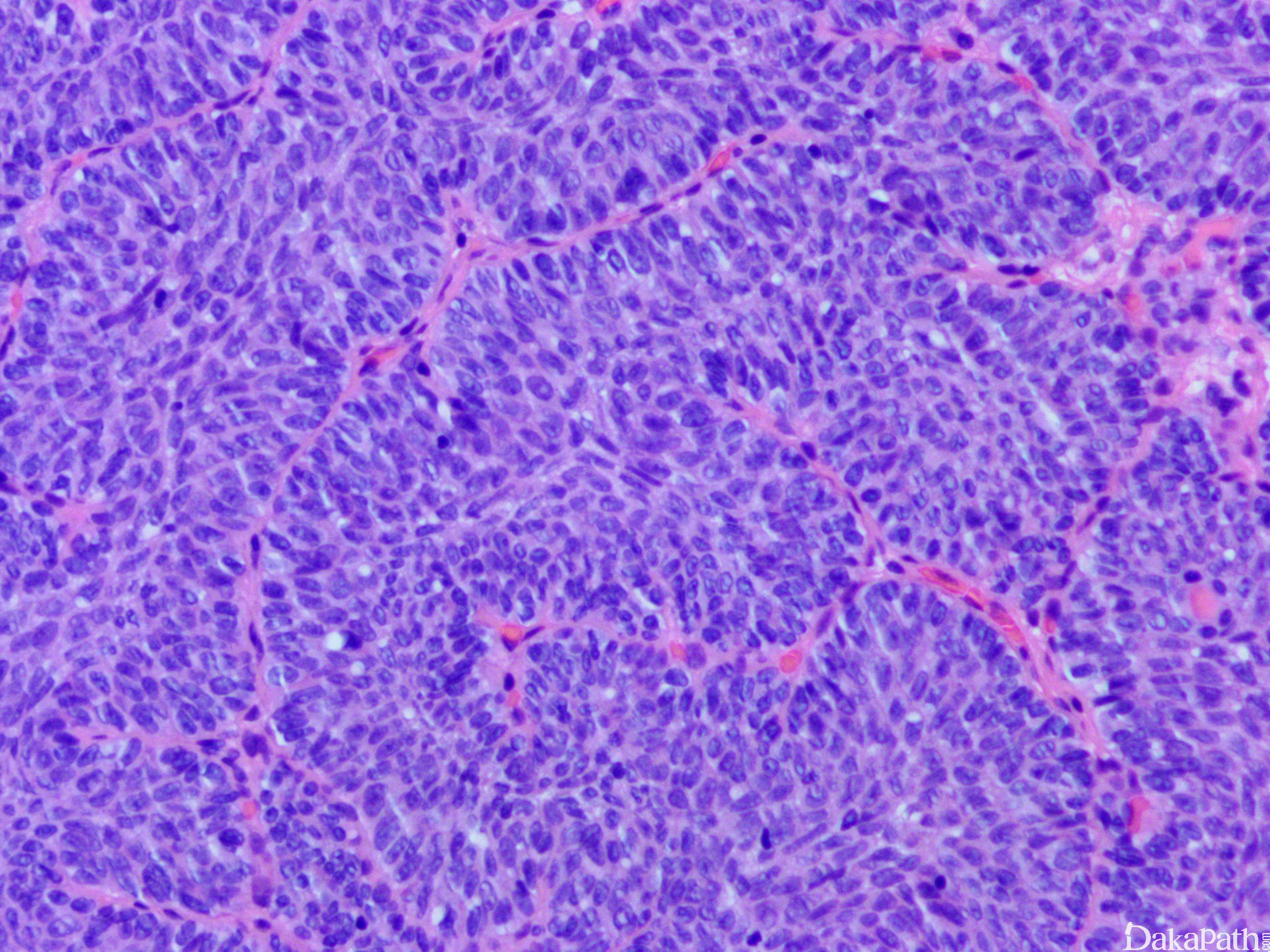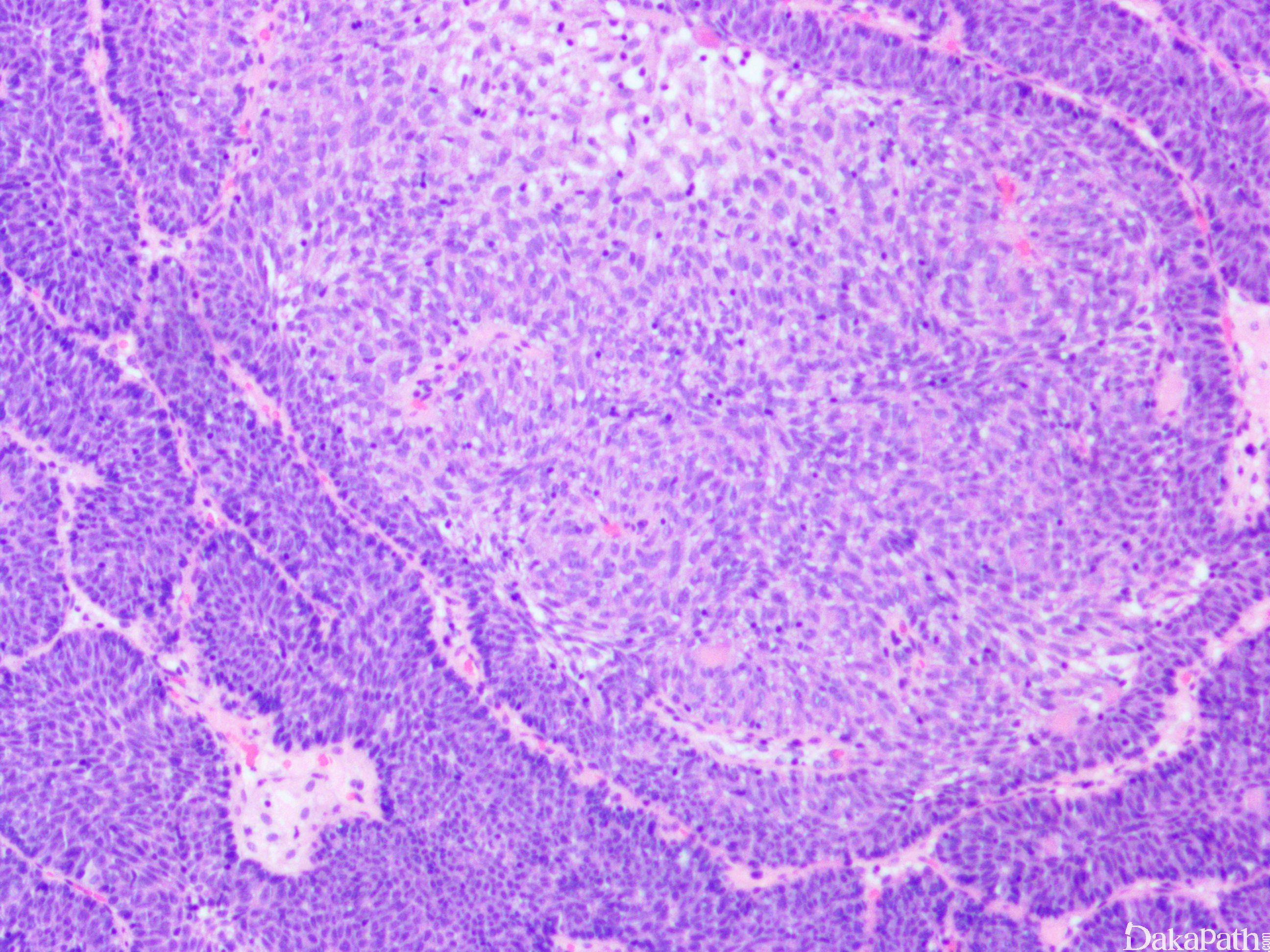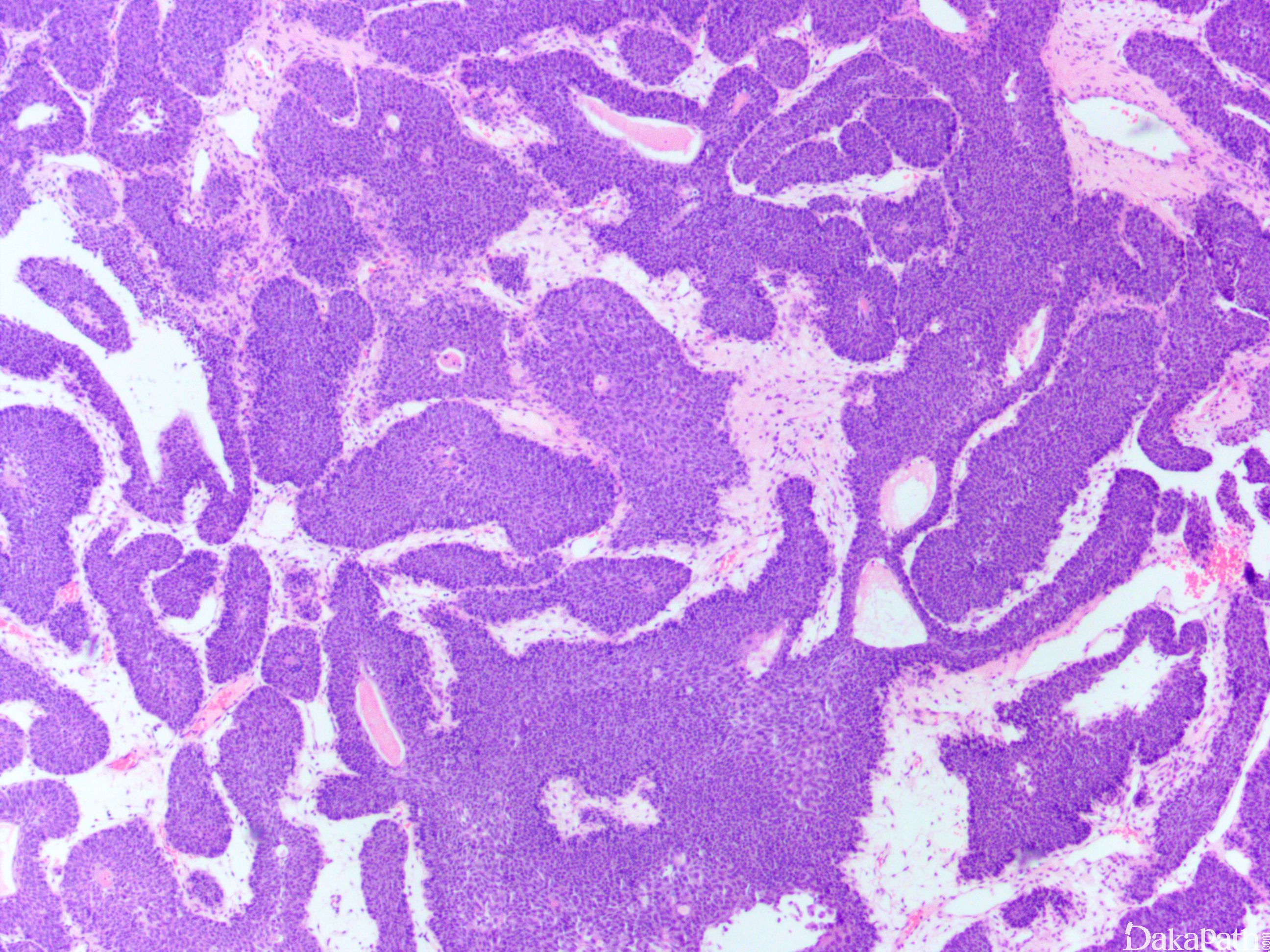膀胱低度恶性潜能内翻性乳头状瘤
Bladder Inverted Papilloma With Low Malignant Potential
概述:
以内翻性生长为主或完全为内翻性生长的乳头状肿瘤,瘤细胞形态温和,局灶瘤细胞巢索融合或出现实性结节
发病部位: 膀胱、输尿管、肾盂、尿道
诊断要点:
- 在内翻性乳头状瘤基础上,瘤细胞索、梁状结构局灶融合或出现较大的实性细胞结节;
- 细胞形态同内翻性乳头状瘤,无明显异型、极向紊乱,核分裂罕见,若出现仅出现在下 1/3 层。







免疫组织化学染色:
不表达或灶状表达 CK20,Ki67 增值指数< 5%
分子标记:
同内翻性乳头状瘤
鉴别诊断:
内翻性尿路上皮乳头状瘤 :无明显的瘤细胞巢索融合和实性结节状生长。
内翻性低级别乳头状尿路上皮癌:广泛的瘤细胞巢索融合和实性结节状生长
预后:
罕见复发或进展
治疗:
切除后灌注化疗
病例报道:
Long-term outcome of primary Papillary Urothelial Neoplasm ofLow Malignant Potential(PUNLMP) including PUNLMP withinvertedgrowth.
参考文献:
Mahul B Amin, Steven C Smith, Victor E Reuter, et al. Update for the practicing pathologist: The International Consultation On Urologic Disease-European association of urology consultation on bladder cancer. Modern Pathology (2014), 1–19
